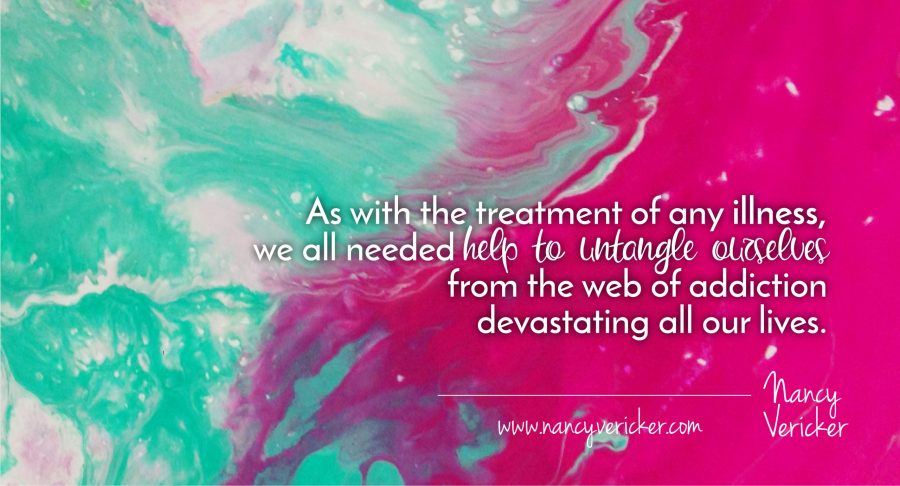When my son was struggling in active addiction it was pretty easy to see what his part of the problem was.
The chaos and self- destruction resulting from his alcohol and drug abuse was front and center in our home. As circumstances worsened, I sought help to deal with his heartbreaking downward spiral.
Initially when I spoke to those sources of help every sentence began with he.
He did this. He did that. He said this. He said that.
I felt justified to assign all the blame for the unraveling of our family on my son’s actions.
I was missing an important piece of the puzzle of the overall problem: I was not looking at my part of it.
Now don’t get me wrong. My son was completely responsible for his choice to use substances.
But what I did not understand then was that substance use disorder is a disease of the family system and as it progresses, everyone in the family becomes ill with it.
It took me a lot of time and help from 12-Step fellowships, counselors, friends, faith-based support and recovery mentors to realize that my family of six all shared various symptoms of the illness of substance use disorder including denial, co-dependency, enabling, isolation, fear, anger, sadness, hopelessness and anxiety.
As with the treatment of any illness, we all needed help to untangle ourselves from the web of addiction devastating all our lives.
It was not easy, but I needed to learn that whether my son chose a path of recovery – or not – I had to seek my own recovery from this family systems disease. I had to choose the “medicine” of change for my own wellbeing.
This was very hard to do because I felt responsible for my son’s addiction. I blamed myself, my genetics and my parenting for his circumstance.
For a long time that misguided thinking riddled my life with anxiety and despair. My happiness was entirely tied to how my son was doing.
Welcome to the World of Big Time Co-Dependence.
I have spoken to many, many parents who also struggle with the illness of addiction in their own families. As parents we are always focused on the well-being and happiness of our children – even when they are adults.
But I always urge parents to seek help for themselves. Because as they get better the addictive family system will naturally change.
In my own process of healing, I came to accept the wonderful Ala-non saying:
I didn’t cause it. I can’t control it and I can’t cure it.
That acceptance took a lot of time. It was one step forward and two steps back.
I had to take a hard look at how actions I believed were helping my son were actually enabling his addiction. And part of my own recovery path – or as it says in the long version of the Serenity Prayer my “pathway to peace” – was to take a tough love stance with my son.
Tough love does not mean no love.
Tough love is loving with necessary and appropriate boundaries. It means having the willingness to let our child experience the consequences of their addiction choices as a means for them to establish their own path to recovery.
Consistently following through on that path to recovery was one of the hardest things I have ever had to do.
Ultimately, that tough love course of action was the right one for my family. In April, my son, who is co-founder of treatment centers in Massachusetts, celebrated 10 years of recovery. This week I will celebrate 30 years of recovery.
Just as we go to a doctor and take the prescribed medicine to heal from physical illness, we all need to seek our own path to recovery in this complicated family systems disease.
How are you pursuing your own personal path to recovery from the family systems illness of addiction?
What has worked for you on this journey?
Please share here. We can all be inspired by our collective experience, strength and hope.
Connect With Nancy
For information and guidance for help and resources for you or your loved one please email: info@nancyvericker.com
Nancy is co-author of Unchained: Our Family’s Addiction Mess Is Our Message.



0 Comments
Leave a comment